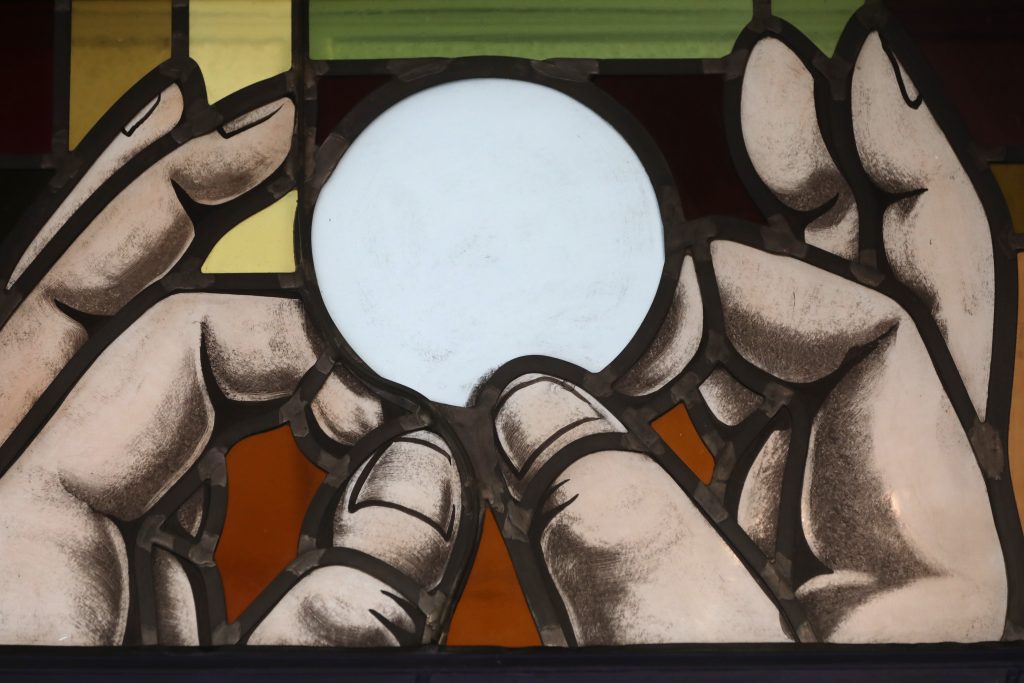“What I have done is far worse than murder.” This quote comes from “The Heart of the Matter,” a novel by Graham Greene. In the book, Henry Scobie, a Catholic convert and an adulterer, is trying to explain to his mistress how badly he feels about receiving holy Communion in the state of mortal sin.
He had tried to go to confession, but because he could not say that he intended to stop sinning, the priest could not give him absolution. The mistress was not impressed with his scruples.
“You’re trying to impress me. You don’t believe in hell any more than I do,” she had said. But Scobie did believe that he had offended Christ by receiving him in the state of sin and that he would go to hell for it.
Greene hated the fact that people called him a “Catholic novelist,” but his work often illustrated concerns that would only bother a Catholic conscience. Near the end of his life, he called himself a “Catholic agnostic,” but I like to say that he was a very good bad Catholic, given how aware he was of his own sinfulness.
George Orwell hated “The Heart of the Matter” and thought the concerns of the novel were “trivial.” I suppose a person without faith would need a lot of imagination to understand that receiving the sacrament of the Eucharist in the state of sin would be a personal betrayal not just of one’s principles but of a personal God.

There are many people today who espouse a view on conscience closer to Orwell than to Greene, including many Catholics. Very few Americans (including members of Congress, by their own admission) believe that there is anything that should keep them from receiving Communion.
Perhaps this is a cultural thing. Catholics in other countries tend to be more aware of a connection between their practice of the Faith and participation at Mass.
When I had recently arrived at the mission in El Salvador, I remember going to one of the rural “caserios” (“settlements”), for Mass. I had recently met the pastoral coordinator of the chapel and was surprised when he did not come up for the sacrament. Later he said, “Padre, I didn’t present myself at the banquet today in the right garment.” He was referring to Christ’s parable about the man invited to the king’s son’s wedding but who was thrown out because he was not dressed properly (Matthew 22:1–14).
I remember the case because I respected the man’s concern for his conscience. The novel and the memories it evokes for me made me think of the situation of the bishops in our country who feel obliged to warn political people that their advocacy of abortion is a serious sin. Scobie, as well as the parish coordinator, realized that they should not receive Communion. There was no defiance in their hearts. What kind of book would Greene have written if Scobie thought that he still had a right to Communion despite his adultery? What can pastors do with people who have lost a fundamental element of morality?
It may be that the politicians don’t visit a fetal “abattoir” (“slaughterhouse”), but their remote involvement has to do with counseling people in favor of abortion and working so that the government will pay for abortions. If government officials force all taxpayers to pay for abortions, they are not only participating in an act that is mortally sinful, but are also forcing others to materially cooperate in grave evil.
Recently, a young man came to me for counseling and said that his girlfriend had been forced to have an abortion by her parents.
“And they were Catholics!” he said with some disgust. Though he himself was not a Catholic, he had argued against the abortion. Not only did those grandparents end the life of their grandchild, but also they scandalized someone who knew what their faith taught them to do. So it is, too, with politicians who provocatively make an issue of their Catholic faith while promoting offenses against the moral law.
If the bishops ignore the fact that politicians think that defying the Church’s prohibition of abortion is trivial or irrelevant, then, how can they teach the broader society that it is wrong? Then the scandal will be something the bishops have to answer for. If a line cannot be drawn about taking the life of a fetus, where can it be drawn? Like Jesus, the bishops should make sure we all know about the fact that the invitation to Communion is universal, but that doesn’t make the wedding garment of a good conscience irrelevant.

